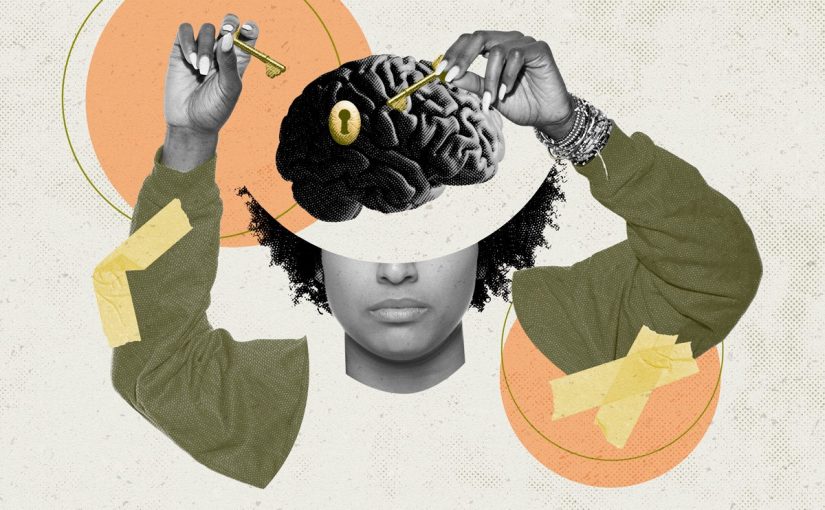An interview with Dr Amit Dias
We may have missed out on celebrating “Good Memory Day” on January 19, but fear not! To compensate and brush up our memory on memory, we’ve decided to go down memory lane, with our mental health expert who in this interview aptly says, “Memories are the treasures of the heart.” He describes various types of memories and offers valuable suggestions on how to bolster them. Here is an enlightening and enriching conversation!
Goan Observer: Doctor, let’s start by understanding what is memory, and how it functions in our daily lives.
Dr Amit Dias: Life would be difficult if we could not remember things. Memory is like a diary that we carry with us. Our functioning is hinged on the ability of our brain to encode, store and retrieve information in a split of second. Working memory is like our mental notepad, allowing us to hold and manipulate information temporarily. For instance, when solving a math problem, working memory keeps track of the numbers you’re currently working with. It’s vital for tasks that require immediate processing and retrieval of information. Aristotle said humans are born with a mind like a blank slate and memories are imprinted on it. Hopefully, you fill it up with good memories.
Q: There are different types of memories. Can you explain some of them?
A: Yes, though the brain is a complex organ, modern science has been able to reveal some secrets of how it works. There can be long-term and short-term memory and various other types. Episodic memory, for example, involves personal experiences and events. For example, remembering your last vacation involves episodic memory. Semantic memory, on the other hand, is more about general knowledge, like knowing that Panjim is the capital of Goa. Prospective memory is remembering to do something in the future, such as attending a scheduled meeting, taking medication, attending a party, etc. Sensory memory is the initial stage that captures sensory information briefly. Think of it as a snapshot. For example, when you see a beautiful sunset, the initial impression is stored briefly in sensory memory before being processed further. It filters what’s essential for further attention and processing.
Q: You mentioned short and long-term memory. Could you elaborate on the differences between them and how they interact?
A: Short-term memory is like a temporary workspace, holding information for a brief period. For instance, remembering an OTP and entering it on your phone… you remember the number only for that moment and will not be able to recall the number after five minutes. Similarly, you may be able to enter a 10-digit mobile number dictated to you on your phone…but you will not be able to remember it later. Long-term memory involves more permanent storage, like recalling childhood memories. The transfer from short-term to long-term memory occurs through processes like rehearsal and meaningful associations.
Q: What about photographic memory? Does it exist?
A: Photographic memory, or eidetic memory, is often portrayed in movies, but it’s quite rare in reality. It involves recalling visual information with exceptional detail. For instance, a person with photographic memory might remember intricate details of a scene, like the arrangement of objects on a table, after seeing it only briefly. Some people do have the ability to remember things they see rather than what they read…. but this is not true photographic memory, this is using visual aids to help your brain remember.
Q: That is indeed very interesting. Why do some individuals remember more than others?
A: Memory differences result from a combination of genetic, environmental, and lifestyle factors. Some people may have a genetic predisposition to better memory, while engaging in mentally stimulating activities, maintaining a healthy lifestyle, and managing stress can positively impact memory function. Some people have the ability to remember dates and details of incidents where as some people are almost allergic to numbers. It’s a mix of genetic and acquired skills. However one can always exercise the brain and use techniques to enhance their cognitive ability.
Q. How is memory processed in the brain?
A: The memory process involves receiving information, encoding it into a neural code, storing it in various brain regions (such as the hippocampus for short-term memory and the cortex for long-term memory), and later retrieving it when needed. It’s an amazing and complex interplay of neurons and neural circuits.
Q. What are the memory-related problems we can face?
A: Memory-related problems range from common forgetfulness to more severe conditions like Alzheimer’s disease. Forgetfulness and absent-mindedness are typical, but persistent and significant memory loss, especially if it interferes with daily life, may be indicative of more serious issues. Memory problems should be evaluated some of them could be treated.
Q: When will memory loss be called a disease, such as dementia?
A: Memory loss becomes a concern when it significantly impacts daily functioning. Conditions like dementia are diagnosed when memory loss is accompanied by cognitive decline affecting reasoning and problem-solving abilities.
Q: Let’s end on a positive note, what can be done to improve our memory?
A: To improve memory, maintaining a healthy lifestyle, engaging in cognitive activities, staying socially connected, and seeking professional advice for memory concerns are essential steps. Regular mental stimulation, physical exercise, and a balanced diet contribute to overall cognitive health. Always mind your mind. Your mind is a storehouse of memories and memories are the treasures of the heart. Always be good and make good memories as that will keep you happy.

